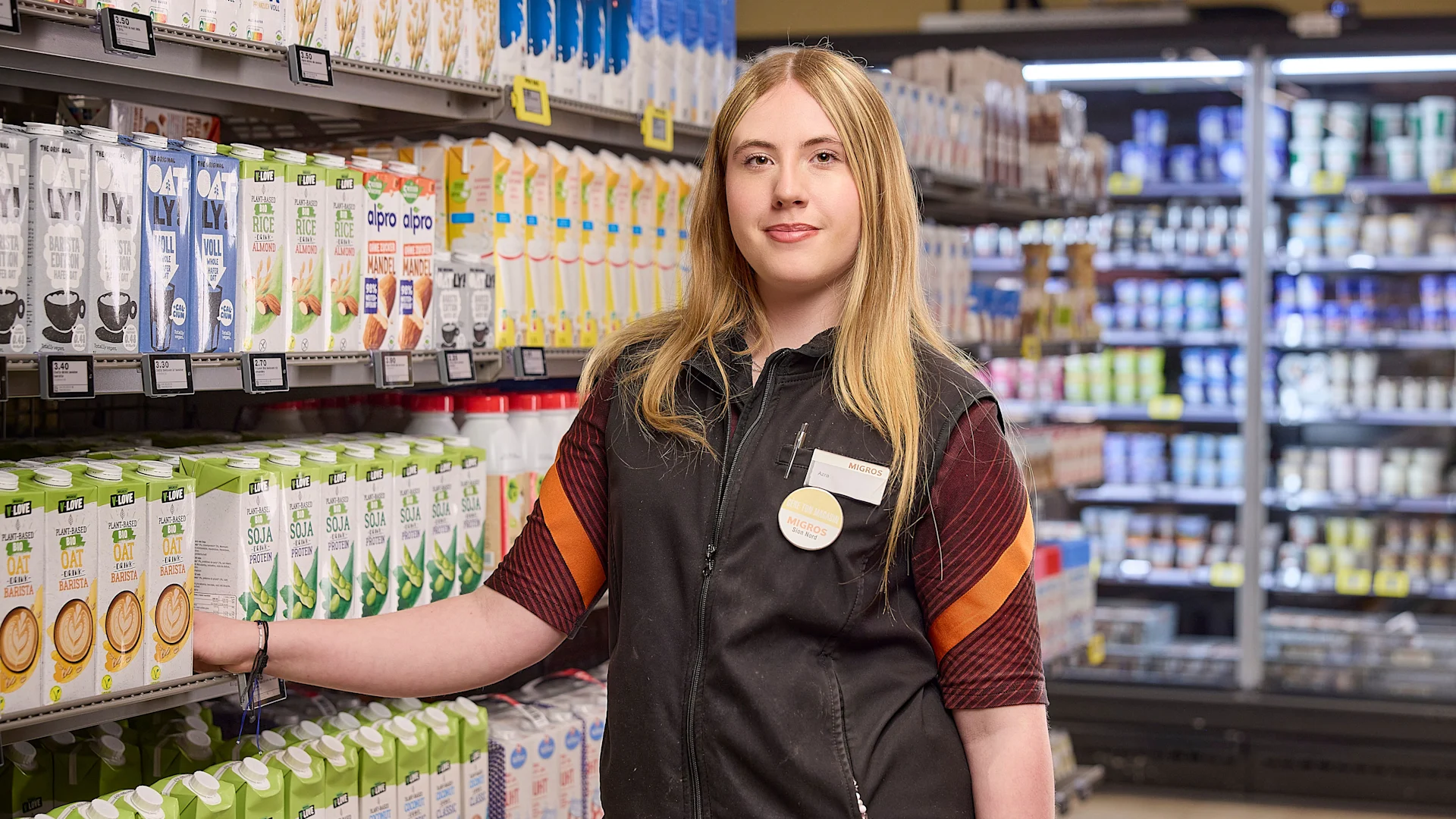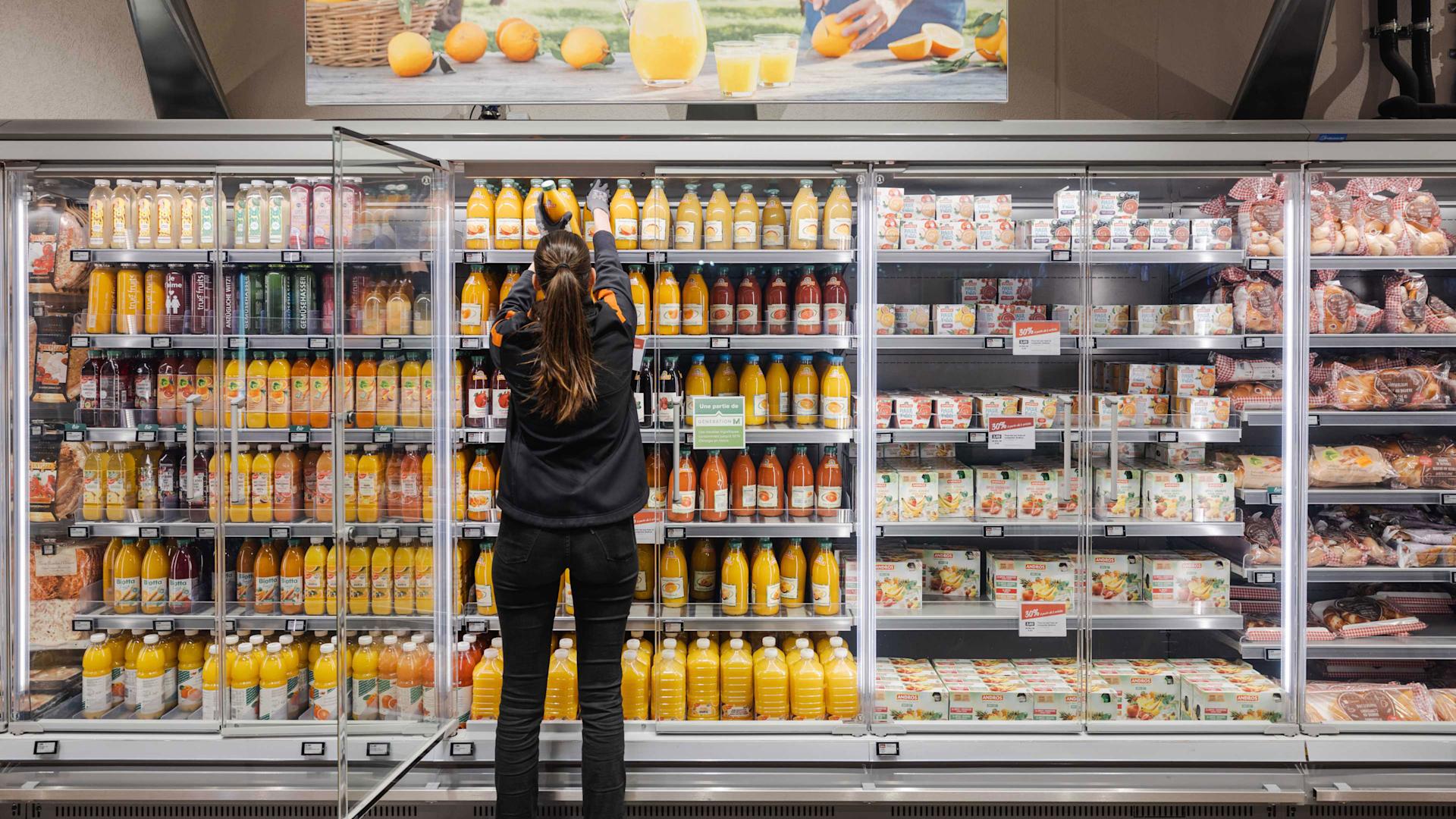
Work environment
Apprentices given management tasks
Apprentices ran a Migros store in Sion by themselves. We find out what they learned from the experience.
navigation

Climate & energy
Air conditioning systems and deep freezers are indispensable in supermarkets and factories. Engineer Philipp Seibert explains how Migros is making its entire refrigeration technology environmentally friendly.
It is said that air conditioning systems harm the environment and are driving global warming. Is that true?
Yes, if they contain synthetic refrigerants. For example, if the system leaks, these agents are released into the atmosphere, where they are harmful to the global climate. One kilogramme of these refrigerants has a greenhouse gas effect up to 4000 times greater than a kilo of CO₂.
So are the systems at Migros contributing to global warming?
No. Fortunately, there are also natural refrigerants that are environmentally friendly, such as ammonia, propane and CO₂, which Migros has been using for many years.
What exactly does this mean?
The largest air conditioning systems in our factories have been using ammonia for decades. We have been switching to natural refrigerants in our supermarkets and in smaller systems at our industrials and logistics centres for more than 15 years. We are doing pioneering work here. But it's a huge project. About 80% of our refrigerants are now natural.
Can natural refrigerants simply be added to existing systems?
No. That's impossible because environmentally friendly refrigerants have different properties to the gases that were used in the past. Systems running on CO₂ have a higher operating pressure, while propane is flammable. We must therefore install new systems that are built differently.
Can't careful maintenance prevent refrigerants leaking from the systems?
No. This can't be ruled out completely, even if great efforts are taken to ensure this. Air conditioning units are complicated systems with many pipes that are constantly vibrating gently. Inside them, the refrigerants are alternately vaporised and liquefied again. The whole thing is a closed cycle, but over time tiny leaks can never be avoided entirely. This makes it all the more important that environmentally friendly refrigerants are used in such systems.
What is Migros doing to reduce the electricity consumption of its many systems?
Amongst other things, we are employing intelligent system management, monitoring power consumption and optimising the technology in a targeted manner. We also use waste heat to heat water and warm rooms in winter. Some Migros companies have therefore already been able to dispense with fossil fuels completely, which also benefits the environment.
Why does Migros need so many air conditioning units and refrigerators?
Because we wouldn't be able to offer flawless products in any other way. It's not just about what you see at our stores. Ice cream mustn't melt and vegetables should be fresh and crunchy. We must also consider transportation and the Migros distribution centres. Without refrigerated rail freight wagons, lorries and warehouses, food would go bad on a massive scale.
Migros has its own factories that manufacture a large proportion of its products. What role do air conditioning systems play there?
They are extremely important because perishable food like meat, fish and milk obviously has to be refrigerated. However, products such as fruit juices, jam and chips are also processed using heating and cooling to prolong their shelf life. Refrigeration systems are even used in bakeries, for example to influence the proofing of dough. To sum up, we wouldn't have any Migros own-brand products without refrigeration.
Philipp Seibert is the Senior Project Manager Industrial Refrigeration at Migros.
Discover exciting stories about all aspects of Migros, our commitment and the people behind it. We also provide practical advice for everyday life.